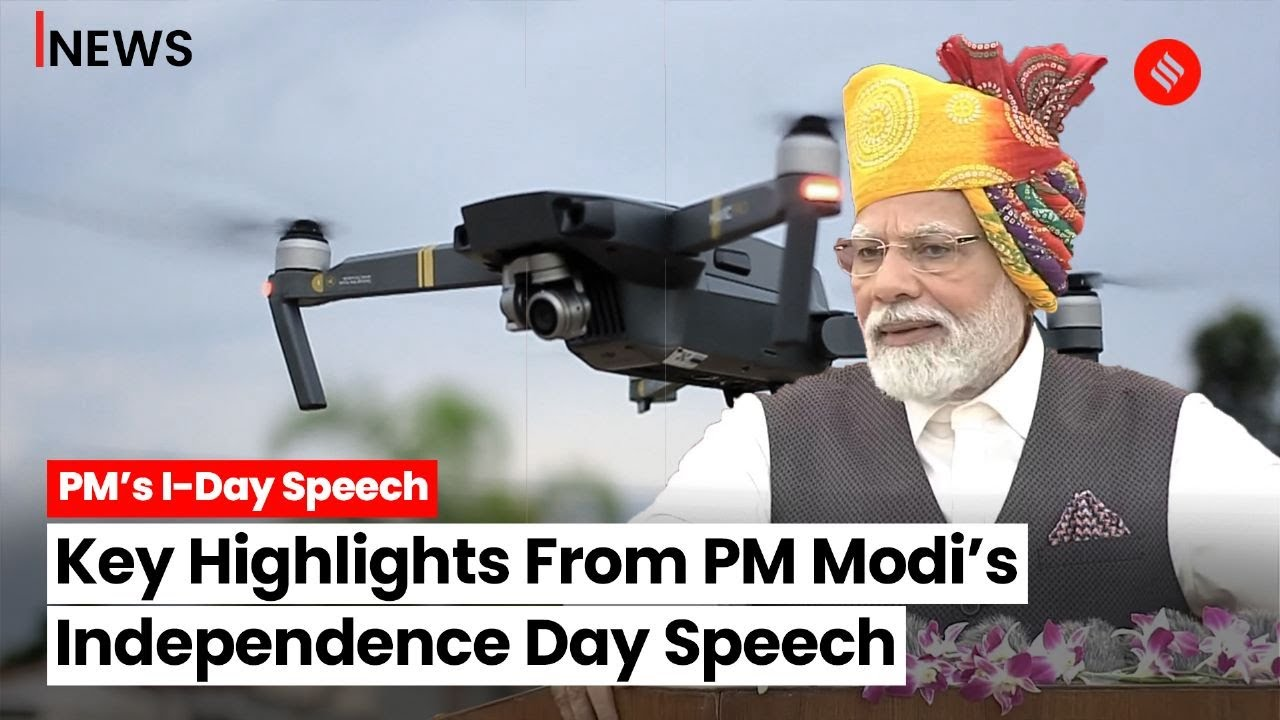Description

Copyright infringement not intended
Picture Courtesy: The Indian Express
Context: On August 15, 2021, India marked its 77th Independence Day with a grand ceremony at the Red Fort in Delhi, where Prime Minister addressed the nation for the tenth consecutive time. The Prime Minister paid tribute to the freedom fighters who sacrificed their lives for India's independence and vowed to fulfil their vision of a strong, prosperous, and inclusive India.
Details
- In his speech, Prime Minister highlighted India's achievements and challenges in the past seven decades and laid out his vision for the future. He said that India is entering a new era of opportunities and that the actions taken from now on will shape the next 1,000 years of India's history. He urged the people to work together to make India one of the top three economies in the world by 2026 and a developed nation by its 100th Independence Day in 2047.
- He stressed India's strength as a nation of diversity, democracy, and demography. He said that India's diversity is its beauty and its democracy is its soul. He added that India's demography is its biggest asset and that the youth of India has the potential to transform the country and the world.
- He spoke about various issues affecting the nation, such as corruption, violence, terrorism, appeasement, and dynasty politics. He said that these evils have no place in India and that his government is committed to fighting them with full force.
Key Highlights of the Speech
- Launch of the 'Vishwakarma scheme' to support traditional skills and crafts with an allocation of Rs 13,000 to 15,000 crore.
- Praise for women's achievements in Science, technology, engineering, and mathematics (STEM) fields and the role of women in India's progress. He also announced that women will be able to join the National Defence Academy (NDA) and be eligible for permanent commission in the armed forces.
- India's role as a leader in the global south and its contributions to global stability. He said that India has extended its support to over 150 countries during the Covid-19 pandemic and has also taken initiatives such as the International Solar Alliance (ISA) and the Coalition for Disaster Resilient Infrastructure (CDRI).
- India's significance in the changing geopolitical landscape. He said that India has shown its resolve to protect its sovereignty and interests in the face of external threats and challenges. He also said that India is committed to maintaining peace and harmony in its neighbourhood and beyond.
- The emphasis on a strong government committed to the nation's interests. He said that his government has taken bold decisions such as abrogating Article 370, implementing GST, banning triple talaq, enacting farm laws, and carrying out surgical strikes.
- India's progress extends beyond major cities to Tier-2 and Tier-3 cities. He said that his government has launched schemes such as Smart Cities Mission, AMRUT, PM Awas Yojana, PM Gram Sadak Yojana, etc. to ensure urban and rural development.
- Efforts to control inflation and take steps to ease inflation pressures. He said that his government has taken measures such as increasing MSPs, providing free ration, expanding PM Kisan Samman Nidhi, etc. to help farmers and consumers.
- The focus is on regional development and ensuring that every part of India thrives. He said that his government has given special attention to regions such as Northeast, Jammu & Kashmir, Ladakh, Andaman & Nicobar Islands, etc. to ensure their development and integration.
The Prime Minister's speech was received with applause and enthusiasm by the people of India who celebrated their Independence Day with pride and patriotism. The speech also reflected India's confidence and optimism as it faces the challenges of the present and prepares for the future.
|
PRACTICE QUESTION
Q. What is the significance of the statement that democracy requires an ongoing struggle to expand and safeguard rights, and how does this concept reflect the challenges and dynamics inherent in democratic systems?
|

https://epaper.thehindu.com/ccidist-ws/th/th_delhi/issues/47913/OPS/GS0BKF7J7.1.png?cropFromPage=true










